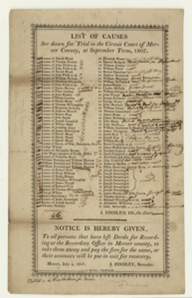
A serious truck accident can have an immense impact on your health, finances, and your life in general. Since commercial trucks are much larger than commuter cars, collisions that occur even at low speeds can destroy passenger cars and severely injure their occupants.
Fortunately, a Glastonbury personal injury lawyer from Claggett, Sykes & Garza can pursue compensation for the medical bills, lost wages, and other losses you’ve suffered due to the incident. A Glastonbury truck accident lawyer from our firm can fight relentlessly to get the results you need to get back on your feet.
Compensation Our Glastonbury Truck Accident Lawyers Can Pursue
If you’ve been injured in a truck crash, you’re probably wondering what forms of compensation you can receive from an insurance claim or civil suit. At Claggett, Sykes & Garza, our team can work with you to identify the financial losses you’ve taken on and evaluate the non-economic challenges you’ve faced due to your accident.
Once we’ve calculated how much you’re owed overall, we’ll fight for a settlement or court verdict that addresses the losses and suffering you’ve been forced to endure. If we are able to obtain compensation on your behalf, you could benefit from any of the following damages:
- Medical expenses
- Ambulance transportation costs
- Physical therapy expenses
- Vehicle repair costs
- Lost wages
- Reduced earning capacity
- Pain and suffering
- Emotional distress
- Loss of enjoyment of life
These damages can provide life-changing support after an accident, but you’ll need an attorney’s help to benefit from them. A truck accident lawyer from our legal team in Glastonbury can draw on their experience and legal knowledge to help you maximize your compensation so you don’t have to worry about paying out-of-pocket for essential medical services.

Injured in an Accident?
Get the Compensation You Deserve. Our Experienced Lawyers Can Help.
Truck Accident Injuries Our Firm Can File a Claim or Lawsuit For
Colliding with a large commercial truck can cause severe vehicle damage, but more importantly, it can also result in serious injuries. Our firm has years of experience working with truck crash victims who’ve suffered from a variety of different injuries. No matter how extensive your injuries are, you can count on us to file a strong claim for compensation.
We can refer to your treatment bills and work with medical professionals to calculate how much you’ll need to afford emergency care, future medical care, and other essential services. We’ll work hard to get you the financial support you need to deal with any of the following accident-related conditions:
- Whiplash
- Traumatic brain injury (TBI)
- Spinal cord injury
- Broken bones
- Concussion
- Cuts and lacerations
- Internal bleeding
- Neck injuries
- Back injuries
- Herniated discs
- Shoulder injuries
- Knee injuries
- Crush injuries
- Burns
- Facial injuries
- Amputations
- Chest injuries
These injuries can leave you with chronic pain and lasting complications. Don’t allow yourself to go uncompensated for the burdens of your injury. Instead, reach out to a committed attorney and get started on your case. A lawyer from our firm can fight relentlessly to get the money you need to afford proper treatment and care for long-term conditions.
How a Glastonbury Truck Accident Attorney Can Prove Your Case
In Connecticut, plaintiffs always bear the burden of proving the defendant’s fault in a lawsuit alleging negligence. Specifically, this means they must show that the defendant trucker was more than 50 percent responsible for the wreck. Doing so can be difficult, but with an experienced attorney by your side, the process will be much simpler.
Here are several steps your attorney can take to prove fault and recover the damages you deserve:
Analyze the Police Report
Examining the police report can give your attorney the information they need to prove fault. If the reporting officer gave the trucker a ticket following the accident, this is direct evidence that the trucker was at fault for the incident. In fact, a court may even assume that a trucker is at fault if a plaintiff can show that they received a moving violation after the accident.
Investigate the Possibility of a Federal Trucking Law Violation
Truckers must follow the same rules of the road as all other travelers. This includes the duty to follow speed limits, properly signal before changing lanes, and avoid driving while distracted. However, truckers are also subject to federal rules regarding their maximum allowable weight on freeways and the total number of hours that they may drive on any given day or week.
Following an accident with a commercial truck, it is often essential to gather evidence that may indicate a violation of these federal laws, as this could be key to proving legal negligence by either an individual trucker or the company that employs them. Our Glastonbury truck accident attorneys can determine if the truck driver or their employer violated federal law.
Reconstruct the Accident Scene
Less straightforward cases could require your lawyer to reconstruct the accident with the aid of an expert. A truck collision lawyer can work with accident reconstruction experts to gain insight into how the crash played out. The information your attorney gathers from accident reconstruction could be used to prove fault and win your case.

Suffered a Personal Injury?
Let Us Fight for Your Rights and Maximize Your Compensation.
Time Limit to File a Truck Accident Lawsuit in Connecticut
If you’re recovering from a truck accident injury, medical treatment and physical therapy should be your priority. That said, it’s also important to focus on your claim after such an incident. Getting an early start on your case will help you comply with state-imposed filing deadlines in the event that you have to file a lawsuit.
Connecticut General Statutes §52-584 requires all people injured in truck crash cases to file a complaint in court no more than two years from the date of the accident. Failure to meet this deadline may render a potential plaintiff ineligible to collect any compensation.
To avoid this worst-case scenario, you should contact an attorney from our firm as soon after your accident as possible. Doing so will give our Glastonbury truck accident attorneys the time they need to file your claim before the two-year deadline.

Injured Due to Negligence?
Experienced Personal Injury Lawyers Ready to Assist You.
Benefits of Working With Our Legal Team
We believe there are many reasons why working with our team is the best choice you can make after a truck collision. Let’s take a closer look at the benefits you’ll enjoy by hiring a trusted lawyer from our personal injury firm.
Case Results
When looking for a legal team to represent you, you’ll want to look for several green flags to ensure a firm is the right choice for your case. First, you should investigate the firm’s past case results. At Claggett, Sykes & Garza, we’ve won a number of high-value case results for injury victims involved in truck crashes and many other incidents.
Client Reviews
The right firm for you will also be eager to showcase the feedback they’ve received from past clients. Our team is happy to share the glowing client reviews we’ve received from accident victims just like you. Their stories speak to the commitment and dedication we bring to every case we work on.
Client-Focused Representation
Our team takes a client-focused approach to each case we take on. That means we’ll work closely with you to identify your unique needs so we know how to help you get the most out of your case. We’ll focus on empowering you and creating a legal strategy that’s tailor-made to address the challenges you’re facing.
With our firm on your side, you can have peace of mind that your best interests are protected at all times.
Talk to a Glastonbury Truck Accident Attorney for Free
Extensive medical care, significant vehicle damage, missed time at work, and pressure from insurance companies to accept a settlement can make the days following a truck collision incredibly stressful. In the face of all these competing factors and interests, it is important to understand your rights and properly value your claim.
A Glastonbury truck accident lawyer can help you understand the law as it pertains to your case and work with you to gather and apply vital evidence to your settlement demand. Contact Claggett, Sykes & Garza today to schedule a free consultation and get the compassionate legal representation you need to file a winning claim. We look forward to hearing from you soon.

